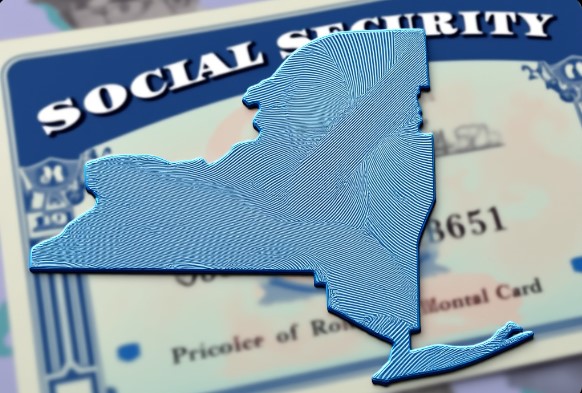

If you’re collecting Social Security, your benefit won’t be reduced if you’re receiving unemployment checks at the same time. However, receiving Social Security benefits may affect the size of your unemployment benefit. Each state has its own rules for unemployment eligibility, and many will reduce unemployment payments dollar-for-dollar by the amount of income received from other sources, including Social Security. If you’re wondering how Social Security will factor into your retirement plan, a financial advisor can help.
The national unemployment insurance program was established in 1932 under the same legislation that created Social Security. Though both programs sprang from the same initiative, unemployment insurance and Social Security are different in purpose and practice. Those differences include their funding, eligibility and how each affects the other.
Social Security is funded by payroll taxes on both employers and employees. The system is run by the federal government through the Social Security Administration.
Unemployment insurance is funded by unemployment taxes paid by employers and collected by the states. The system is administered as a joint program by the states and the federal government. Each state sets its own rules for eligibility and benefit amounts within broader federal guidelines.
Social Security and unemployment insurance are both intended to replace income for workers who have stopped working due to retirement or, in the case of unemployment insurance, involuntary job loss. Both programs base benefits on prior work and earnings history.

Social Security is not means-tested, which means anyone who is otherwise eligible cannot be refused benefits regardless of their financial status. Rich or poor, every wage earner who pays into Social Security is authorized to receive benefits in return.
However, in order to get the benefits intended for people who retire, recipients must in most cases be at least 62 years old. Social Security disability benefits may be available through a different program to younger people who are unable to work because of a health condition.
People who elect to start receiving Social Security retirement benefits at age 62 may have their government benefits reduced if they continue to work and earn money. However, once they reach full retirement age, earning money by working won’t reduce their Social Security benefits.
Unemployment insurance benefits are not considered income by Social Security. So collecting unemployment won’t reduce a person’s Social Security benefits even for those who start taking Social Security before full retirement age.
One difference is that unemployment insurance is time-limited. Workers can receive benefits for no more than 26 weeks in most states. Social Security old-age benefits, on the other hand, continue as long as the recipient lives.

Receiving unemployment insurance won’t affect Social Security benefits, but getting Social Security retirement benefits lead to a reduction in your unemployment benefits. The federal rules actually require states to do this in certain conditions, although the rules don’t say how much unemployment has to be reduced when Social Security benefits are being collected.
Instead, each state is permitted to use different methods for calculating how much unemployment benefits will be reduced by Social Security payments. Some states reduce unemployment benefits on a dollar-for-dollar basis. That is, if you are receiving $1,000 a month from Social Security, your unemployment insurance will be reduced $1,000.
Note that Social Security retirement benefits may be treated differently from disability benefits. Disability benefits may not reduce the size of unemployment benefits, although not being able to work could affect eligibility for any unemployment compensation.
Unemployment benefits have no effect on Social Security payments. However, collecting Social Security may reduce your unemployment payments if you’re out of work. Different states have varying approaches to calculating unemployment, but some reduce unemployment insurance payments by an amount equal to the Social Security benefit you receive. Contact your state unemployment insurance office for details.
Photo credit: ©iStock.com/ljubaphoto, ©iStock.com/Kameleon007, ©iStock.com/ljubaphoto
Mark HenricksMark Henricks has reported on personal finance, investing, retirement, entrepreneurship and other topics for more than 30 years. His freelance byline has appeared on CNBC.com and in The Wall Street Journal, The New York Times, The Washington Post, Kiplinger’s Personal Finance and other leading publications. Mark has written books including, “Not Just A Living: The Complete Guide to Creating a Business That Gives You A Life.” His favorite reporting is the kind that helps ordinary people increase their personal wealth and life satisfaction. A graduate of the University of Texas journalism program, he lives in Austin, Texas. In his spare time he enjoys reading, volunteering, performing in an acoustic music duo, whitewater kayaking, wilderness backpacking and competing in triathlons.
Read More About Retirement



More from SmartAsset
SmartAsset Advisors, LLC ("SmartAsset"), a wholly owned subsidiary of Financial Insight Technology, is registered with the U.S. Securities and Exchange Commission as an investment adviser. SmartAsset's services are limited to referring users to third party advisers registered or chartered as fiduciaries ("Adviser(s)") with a regulatory body in the United States that have elected to participate in our matching platform based on information gathered from users through our online questionnaire. SmartAsset receives compensation from Advisers for our services. SmartAsset does not review the ongoing performance of any Adviser, participate in the management of any user's account by an Adviser or provide advice regarding specific investments.
We do not manage client funds or hold custody of assets, we help users connect with relevant financial advisors.
This is not an offer to buy or sell any security or interest. All investing involves risk, including loss of principal. Working with an adviser may come with potential downsides such as payment of fees (which will reduce returns). There are no guarantees that working with an adviser will yield positive returns. The existence of a fiduciary duty does not prevent the rise of potential conflicts of interest.